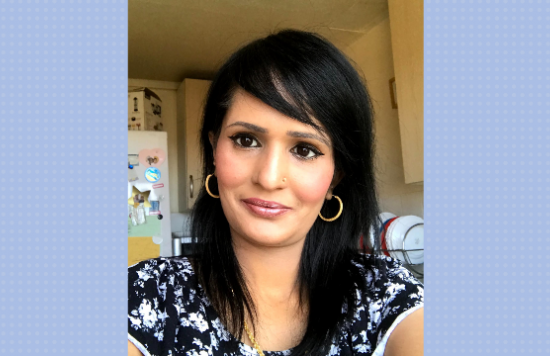Hajara Begum is a long-term service user with a diagnosis of Bipolar Disorder, a member of the People Participation (PP) team and co-chair of the Tower Hamlet’s Mental Health Working Together Group. She discusses the Trust’s community mental health transformation programme in Tower Hamlets – including how care is changing, and how service users are involved in change.
Can you tell us a bit more about your background?
My condition has given me first-hand experience with mental illness, which has made me aware of the misunderstanding and difficulties that come with this illness.
I would like to make a positive impact to deal with the stigma associated with mental health issues and consequently help other service users, so they don’t feel isolated and alone.
I am fascinated by techniques leading to prevention and recovery and know that although mental illness is now more understood, we still have a long way to go.
I am now also employed part-time, as an administrator and facilitator for peer support training across ELFT. We provide a nine-session intensive module for service users and existing peer support workers once completed, then assessed for accreditation by the Royal College of Psychiatrists. We are the one borough to have the accreditation.
How important is it for people to have easy access to mental health services?
It is really important to have the right support at the right time.
As a long-term bipolar sufferer and a mother to twin boys now six, it is very important to me to be able to get access to services and the clinical team who can understand my triggers and patterns as when I start becoming unwell so it can be treated quickly.
What has been your experience of accessing services?
Over the last five years, I have had a mixed experience of services. I have been hospitalised twice with two lengthy admissions. One admission could have been avoided if there had been better opportunities to communicate my symptoms with clinical teams, which could have prompted earlier intervention. Having said that, being in hospital was the best thing for me and I made a full recovery because of the determined and dedicated team.
I now have a really good relationship with my consultants and care-coordinators, who have gone that extra mile to support me and help me stay well. They showed great understanding, not only with my medications and therapy but also in other areas of my life, which I needed support in such as financial and housing issues, which were having a big impact on my mental health.
How did you get involved with the transformation programme?
I was approached by the people participation lead to see whether I would be interested in taking part in the transformation programme, sharing my lived experience and contributing to discussion around improving the service. I was really excited to get involved and share my experience.
Since then, I have contributed to transformation workshops and learning set sessions, which is a collaborative event to help identify and deliver a single assessment framework within services. It is a valuable forum to get real views and opinions from service users as well as clinical and non-clinical teams.
What challenges if any have you experienced?
There is always room for improvement so it’s good to see that ELFT is making great strides through the transformation programme to improve the experience for all.
One of the main challenges in the old system was the long waiting times and delays in receiving treatment, and this is one of the things that is being addressed in the programme.
In the last year, services have had to adapt due to the pandemic, which brought different and bigger challenges to services than ever before and this has meant that are a higher number of service users are needing support for their mental health.
In your opinion what changes are necessary to make the intervention experience better?
I believe that you should not be judged by your illness. The treatment plan should focus on aiding recovery and this can be done not only by medication but also through engaging SUs in activities within the local community through peer support and community connectors. It’s so important to consider what matters to people and expand the involvement of service users in all services to help shape and make their quality of life better.
I personally feel that Dialog+ has helped me in my recovery as it has enabled me to track how I’m feeling and helps me to identify what’s most important to me and this enables me to feel more in control of the care I receive. This information is used by my care coordinators to put a treatment plan together. So it feels like it has been a joint decision and I have been actively involved in my care and treatment. This is so important in the recovery process.
What impact has the transformation programme made to you?
I believe there has been a positive impact made. That changes are still being developed and pilots are still being rolled out and the full impact is yet to be recognised. However, since getting involved in various research and planning events, I have begun to see some positive impact through the initial phase of the programme.
